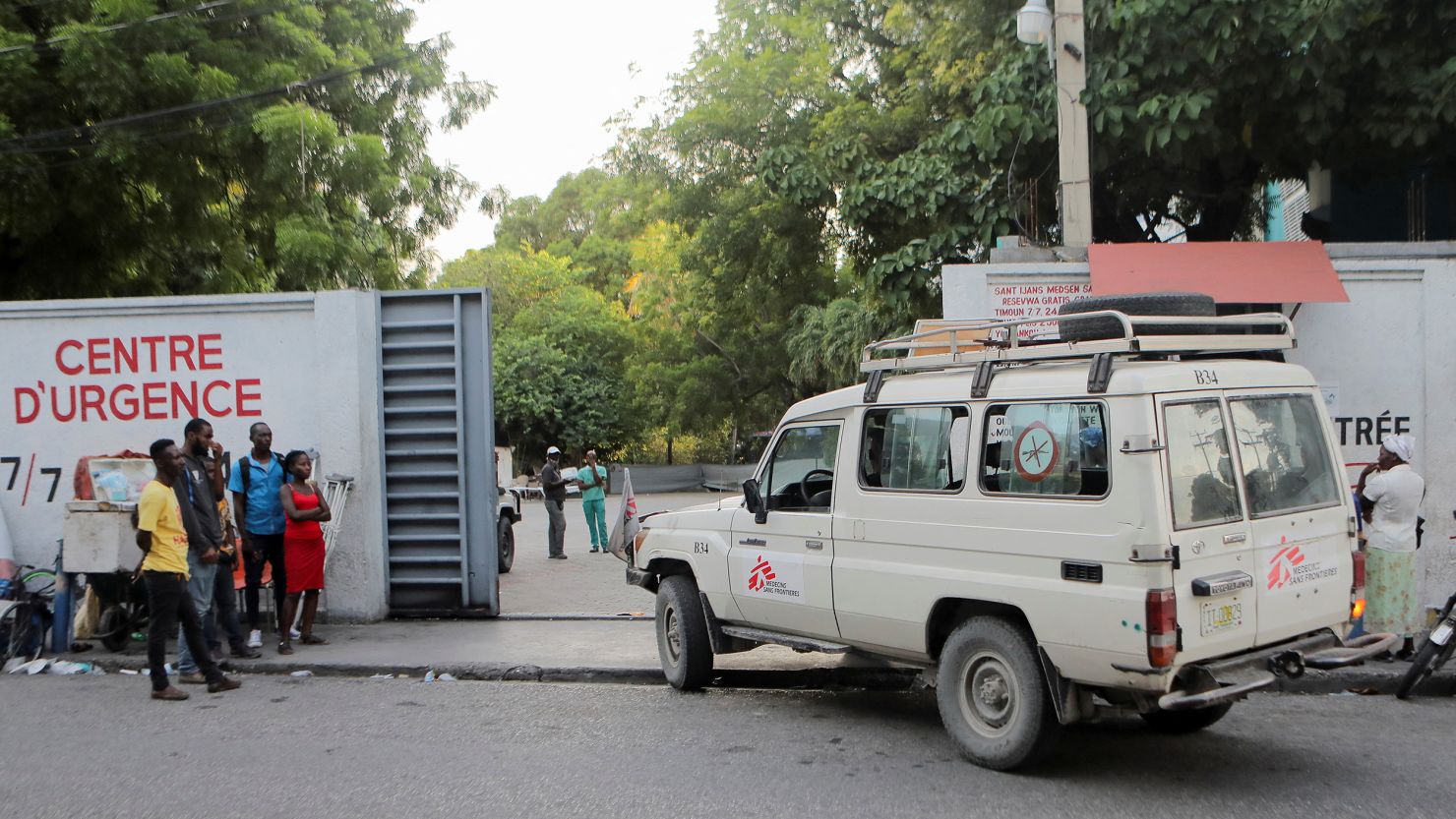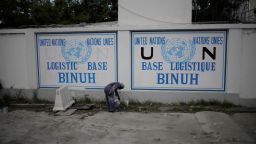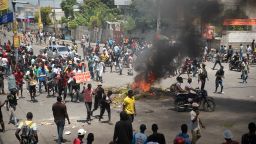Dozens more cases of cholera have been diagnosed in Haiti, adding new urgency to warnings of the Caribbean nation’s descent into chaos amid political and economic crises.
The deadly infection has already killed eight people, according to Haiti’s health ministry, and 68 new cases have been identified in the first week of October according to the medical humanitarian group, Médecins Sans Frontières (MSF).
The “vast majority” of cholera cases under observation by MSF are children, the group’s project coordinator, Moha Zemrag told CNN on Sunday.
The burgeoning new public health emergency could hardly come at a worse time. Anti-government protests – now in their seventh week – have paralyzed the country, with schools, businesses, and public transportation across the country mostly shuttered. Since August 22, Haitians have been demonstrating against chronic gang violence, poverty, food insecurity, inflation, and fuel shortages.
Their fury was further fueled last month when Prime Minister Ariel Henry announced that he would cut fuel subsidies in order to fund the government – a move that would double prices at the pump. Haiti’s powerful gangs have exacerbated the fuel crisis by blocking the country’s main port in the capital city Port-au-Prince.
The country’s hospital system is now starved of fuel. Multiple hospitals have recently announced that they would be forced to shut down or limit services due to lack of electricity from fuel-powered generators.
Dr Laure Adrien, the director general of Haiti’s health ministry, said Sunday that the eight cholera deaths occurred in Port-au-Prince.
“For now, we need to work on prevention and try to identify the source of the recent outbreak. We know cholera is very dangerous but also easily treatable. We call on everyone to be vigilant and do their part as we’re trying to get the situation under control,” Adrien said during a press conference in the capital.
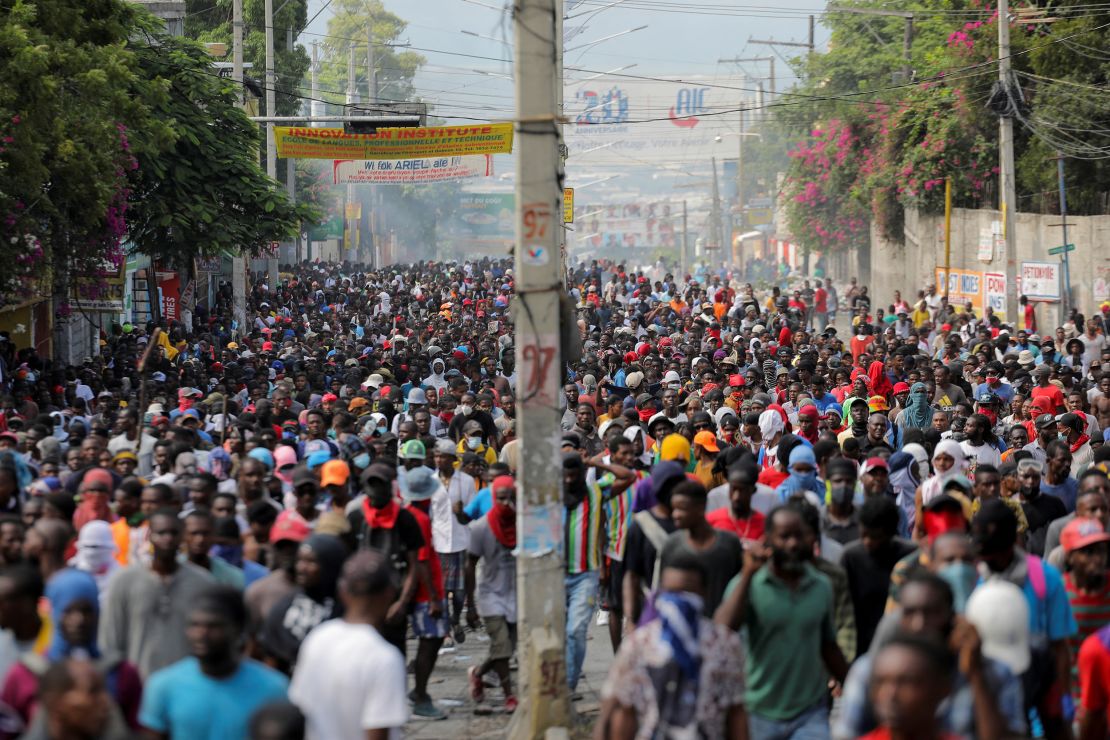
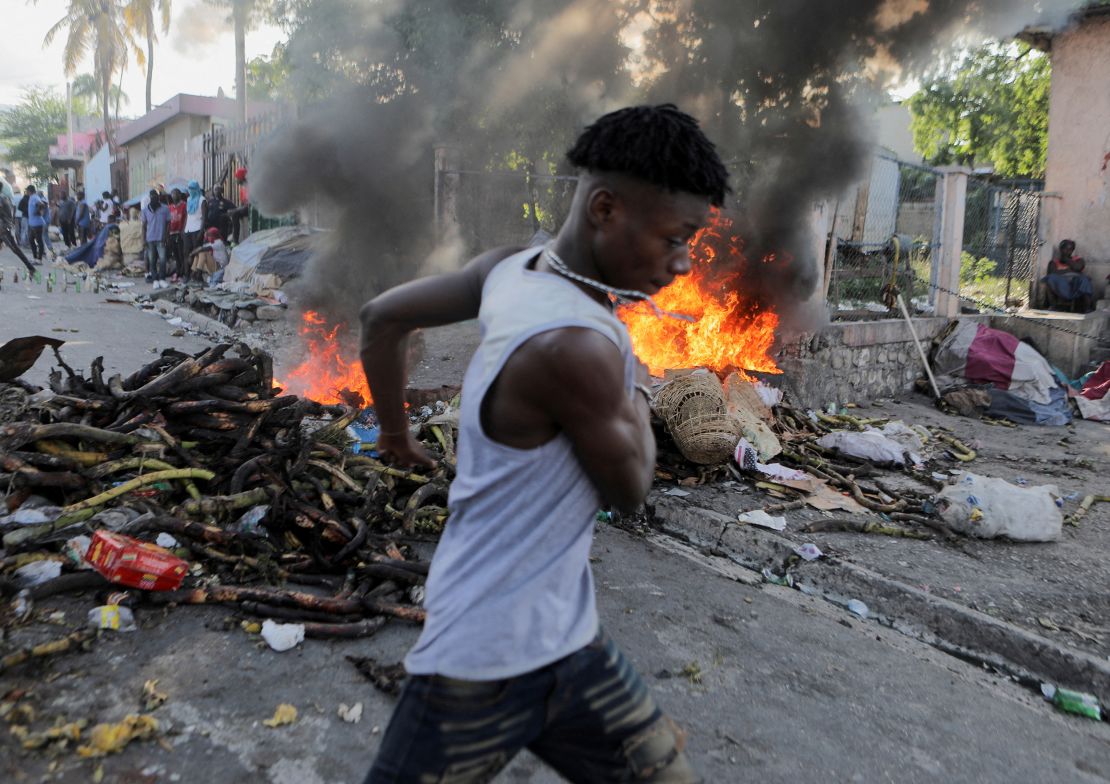
People who live in areas with shortages of safe drinking water or inadequate sanitation are vulnerable to cholera, which can result from consuming bacteria-contaminated food or water.
Although vaccines exist and symptoms can be “easily treated,” according to the World Health Organization, cholera remains an insidious killer through dehydration in the developing world.
Haiti has been scarred by cholera before. In 2010, less than a year after a massive earthquake, cholera began to spread from a camp of UN peacekeepers into the population.
That outbreak ultimately reached 800,000 cases and claimed at least 10,000 lives. Though the UN has acknowledged its involvement in the outbreak, it has not accepted legal responsibility. Rights organizations have not stopped calling for financial compensation for victims.

Until this year, the disease appeared to have been largely stamped out of the country following a nationwide public health battle.
In February, UN Deputy Secretary Amina J Mohammed said Haiti was “on the brink of a historic moment.”
“As we look to eliminate cholera in Haiti, it will be the first country in modern times to do so following a large-scale outbreak,” she said.
But now that milestone seems out of reach, again.
On Monday, the UN said it would assist the Haitian government to mount an “emergency response” to the new outbreak “focused not only on limiting the spread of the disease but also on telling families how to take immediate lifesaving action in their local communities.”
In a statement issued through his spokesperson, UN Secretary-General António Guterres also noted that Haiti’s other crises were making it difficult to respond effectively to the outbreak.
“Fuel deliveries have been blocked at the port since mid-September, which has disrupted not only the daily life of the Haitian people but also the ability and capacity of the United Nations and the international community to respond to a compounding crisis,” he said.
“The Secretary-General appeals to all stakeholders to work together in this time of crisis, to ensure that the gains made over the past 12 years in the fight against cholera are not eroded.”

